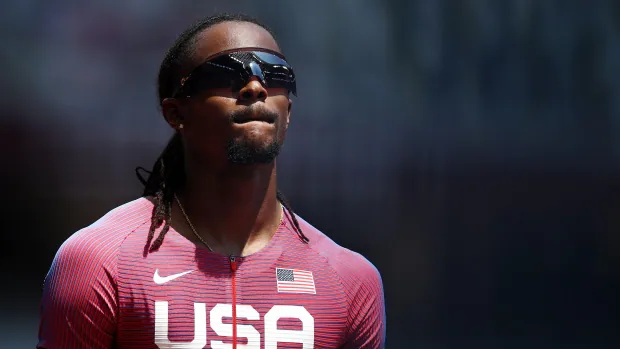Back-to-back NCAA champion Randolph Ross was booted from the world track and field championships on the eve of his 400 metre preliminary race, about a month after officials could not locate him to take an anti-doping test.
The Athletics Integrity Unit announced Saturday it was provisionally suspending the North Carolina A&T sprinter for tampering with the anti-doping process after an unsuccessful testing attempt on June 18. The investigation concluded, the AIU said, after officials interviewed him Thursday.
Also ousted from the meet was Kenyan marathoner Lawrence Cherono, who tested positive for a banned substance used to treat chest pain resulting from lack of blood supply and oxygen to the heart. It was the same drug that led to Russian figure skater Kamila Valieva’s doping case at the Beijing Winter Olympics this year.
Both athletes had been scheduled to compete Sunday.
The AIU has provisionally suspended Kenyan marathon runner, Lawrence Cherono and 400m runner, Randolph Ross of the USA; both athletes are out of <a href=”https://twitter.com/WCHoregon22?ref_src=twsrc%5Etfw”>@WCHoregon22</a>. <br>Press Release – <a href=”https://t.co/G2wzBiMoiu”>https://t.co/G2wzBiMoiu</a><a href=”https://twitter.com/hashtag/WorldAthleticsChamps?src=hash&ref_src=twsrc%5Etfw”>#WorldAthleticsChamps</a> <a href=”https://t.co/3mrJ3U22uK”>pic.twitter.com/3mrJ3U22uK</a>
—@aiu_athletics
The AIU said there were delays in the processing of Cherono’s test sample, which was taken May 23, that made it impossible for another Kenyan to take his spot.
Ross won his second straight title in the 400 metres at NCAA championships earlier this year.
His father, Duane, won a bronze medal in the 110 hurdles at the 1999 worlds. He later served a two-year suspension related to the case involving coach Trevor Graham and the Bay Area Laboratory Co-operative (BALCO) case. Ross coached his son at North Carolina A&T and earlier this year was hired as director of track and field at Tennessee.
Athletes are required to give anti-doping authorities detailed lists of where they’ll be so testers can reach them with no notice to collect samples when the athletes are not competing. In some cases, three missed tries can result in an anti-doping violation. AIU did not release the specifics of Ross’ case, other than to say “the allegation arises out of the athlete’s conduct during the course of an investigation into a potential whereabouts violation.”



















Discussion about this post